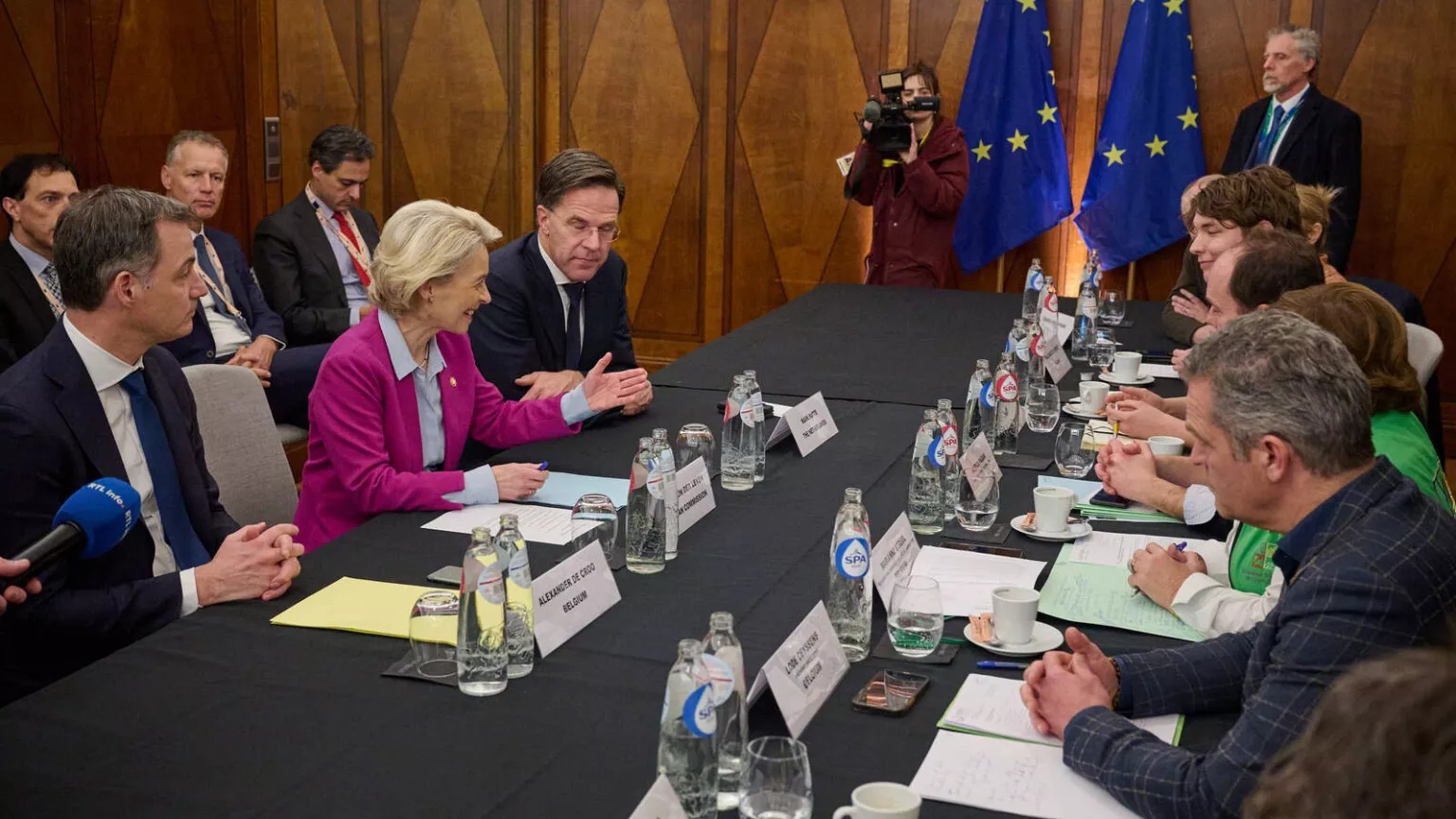European leaders are set to decide on the evening of Thursday, June 26, 2025, whether to pursue a swift trade agreement with the United States or brace for a more combative response to Donald Trump’s escalating tariff threats.
During a high-stakes dinner at the EU summit in Brussels, European Commission President Ursula von der Leyen is expected to brief the 27 heads of state on the latest developments in trade negotiations with Washington.
The meeting comes just weeks before a critical July 9 deadline, after which Trump has vowed to impose 50% tariffs on all EU goods if a deal is not reached.
Currently, most European exports already face a 10% US tariff, while some sectors, including cars, car parts, steel, and aluminium, are hit even harder, with levies as high as 50%.
Germany’s chancellor, Friedrich Merz, threw his weight behind reaching a deal quickly.
“We support the Commission in all its efforts to finalize an agreement with the United States without delay,” he said on arrival at the summit.
Irish Prime Minister Micheál Martin emphasized the importance of clarity for businesses and workers: “Securing a deal is vital to create certainty for industry and protect jobs, which is our top priority.”
Others, however, voiced frustration at Trump’s aggressive stance.
Spanish Prime Minister Pedro Sánchez called the tariff threats “doubly unfair,” particularly given that Spain runs a trade deficit with the US.
His remarks came after Trump reportedly said Spain would “pay twice as much” in retaliation for Sánchez’s refusal to meet NATO’s 5% defense spending target.
Diplomatic sources suggest pessimism is growing within the bloc about removing the existing 10% base tariff.
As the July deadline nears, EU officials appear split between two strategic paths: accept a quick, compromise deal that ensures stability, or take a firmer, retaliatory stance in the hope of forcing a better outcome.
“Do we go into aggressive retaliation mode, or do we stay calm and push through a quick deal?” one EU diplomat said, reflecting the mood of internal division.
The US has shown limited interest in the EU’s proposal for a “zero-for-zero” industrial free trade zone.
Also, it continues to challenge Brussels over issues such as tech regulation and value-added tax (VAT) policies.
Earlier this week, von der Leyen reaffirmed that the EU’s Digital Markets Act, which imposes tighter rules on tech giants, was non-negotiable.
“We can talk about tariffs, standards, non-tariff barriers,” she said, “but decisions that touch the EU’s sovereign policymaking are off the table.”
Belgium’s Prime Minister Bart De Wever urged restraint, saying, “We will not be provoked.
“We aim to negotiate in good faith, and if we cannot reach a deal, we will respond, but with proportionate countermeasures.”
The EU has already paused planned tariffs on €21 billion worth of US goods until mid-July to allow more time for diplomacy.
However, officials are also preparing a list of potential retaliatory tariffs that could impact up to €95 billion in US exports, though that number is expected to be revised downward to avoid inflaming tensions.
Plans to tax American bourbon were quietly shelved after objections from France and Ireland, who feared retaliatory strikes against iconic European exports like cognac and whiskey.
Merz, who is under significant pressure from Germany’s powerful industrial sector, criticized the EU’s strategy as too unfocused earlier this week.
He proposed narrowing the scope of negotiations to five key sectors, including the already impacted automotive and steel industries, as well as pharmaceuticals.
Peter Leibinger, head of the German Federation of Industries (BDI), urged Merz to make the economic pain felt by German manufacturers known in Brussels.
The BDI warned that Trump’s proposed tariffs could shave 0.3 percentage points off Germany’s GDP.
This reportedly further weakened a manufacturing base still struggling to recover from pre-pandemic levels.
EU chief trade negotiator Maroš Šefčovič acknowledged the urgency of the situation.
“The European car industry is clearly bleeding,” he said, highlighting the danger of maintaining the current 27.5% total tariff on cars.
“It’s just not sustainable.”
Šefčovič called for unity among EU member states and expressed his determination to defend European interests.
“Talk to us, criticize us, but stand with us,” he told German business leaders.
He also revealed that the EU is pushing for an “insurance clause” in any deal to prevent abrupt tariff hikes in the future.
“It would be wise to have a standstill mechanism that protects both sides from sudden shocks and market volatility,” he said.
With the deadline just around the corner, the EU must now decide whether to strike quickly or stand firm, knowing that either path carries risks.







